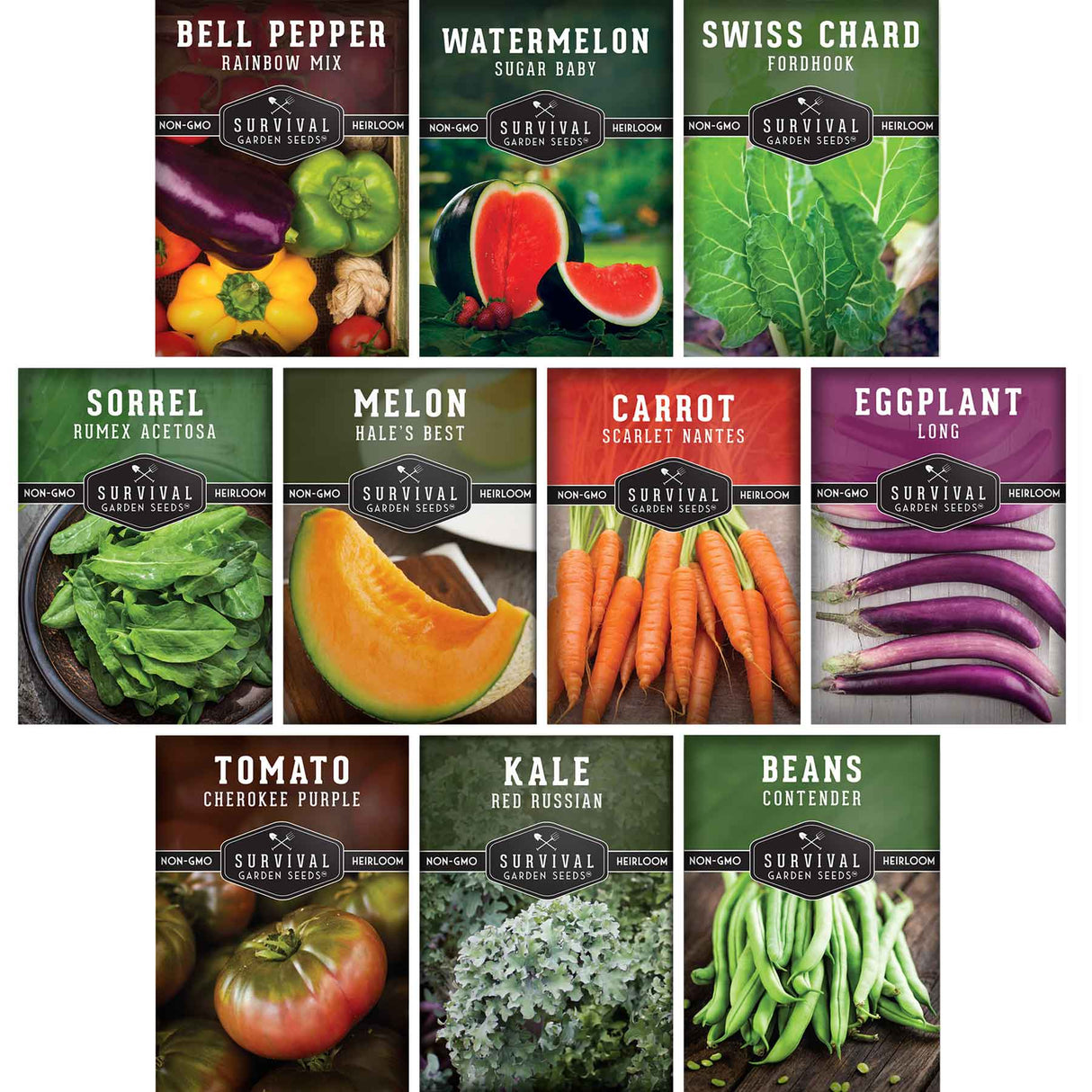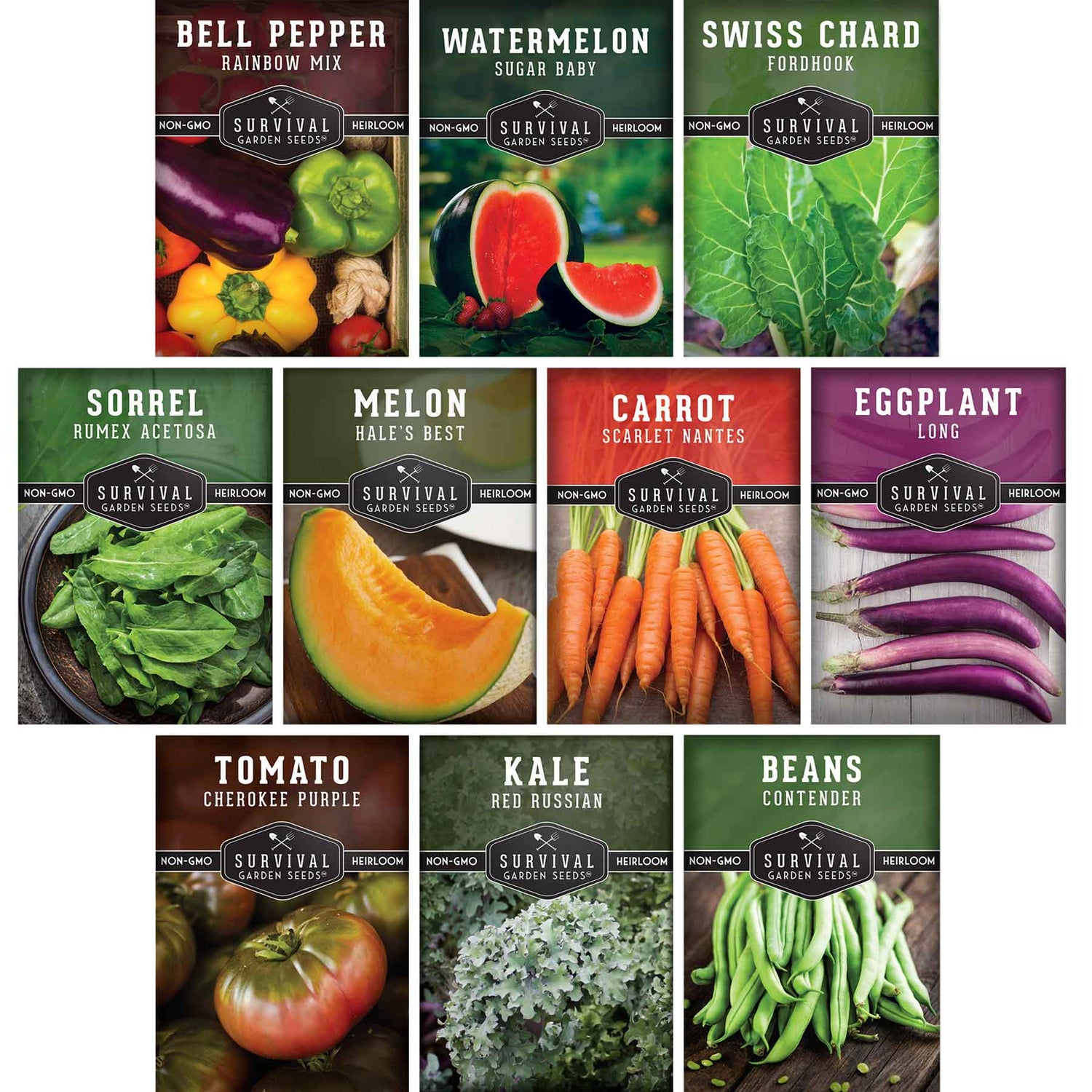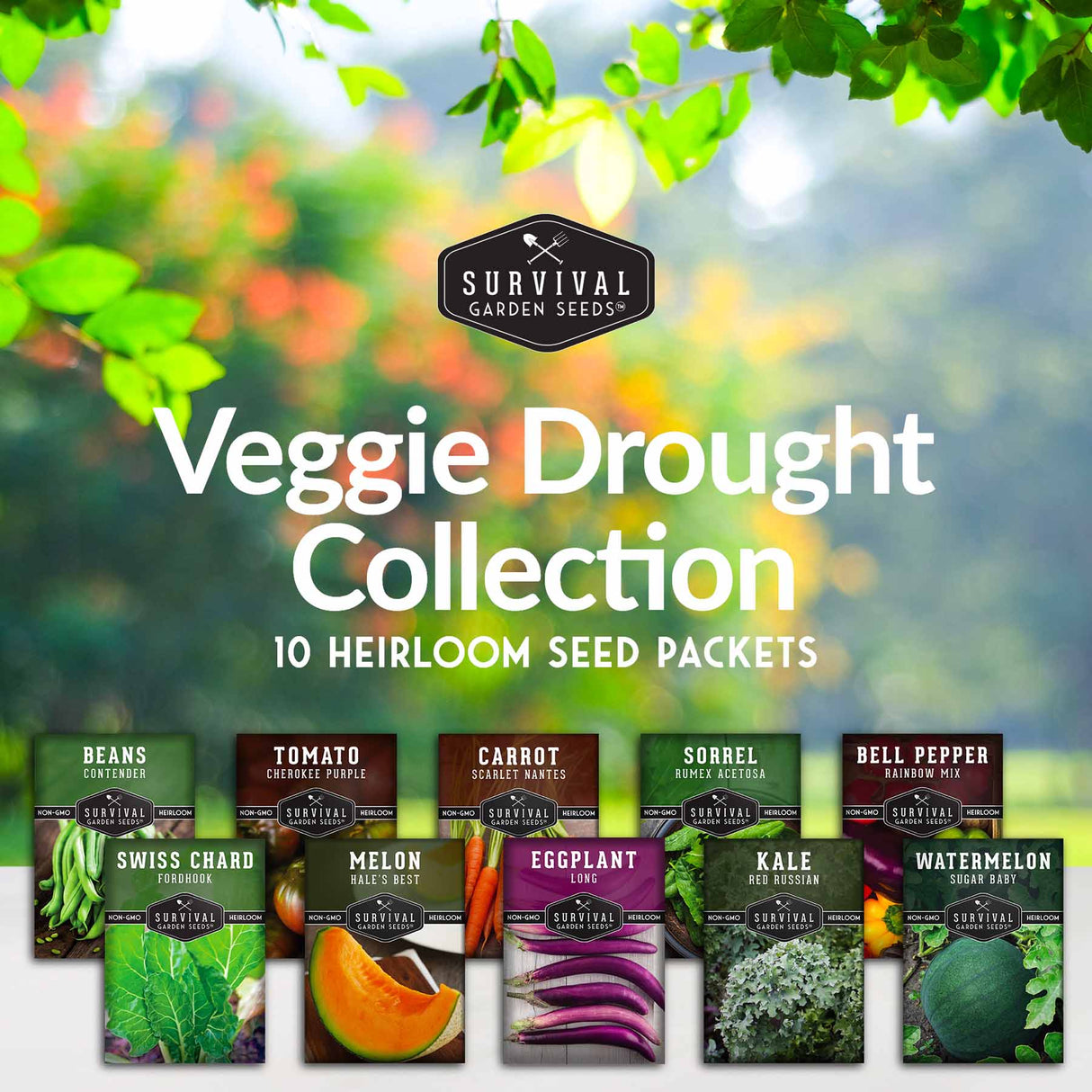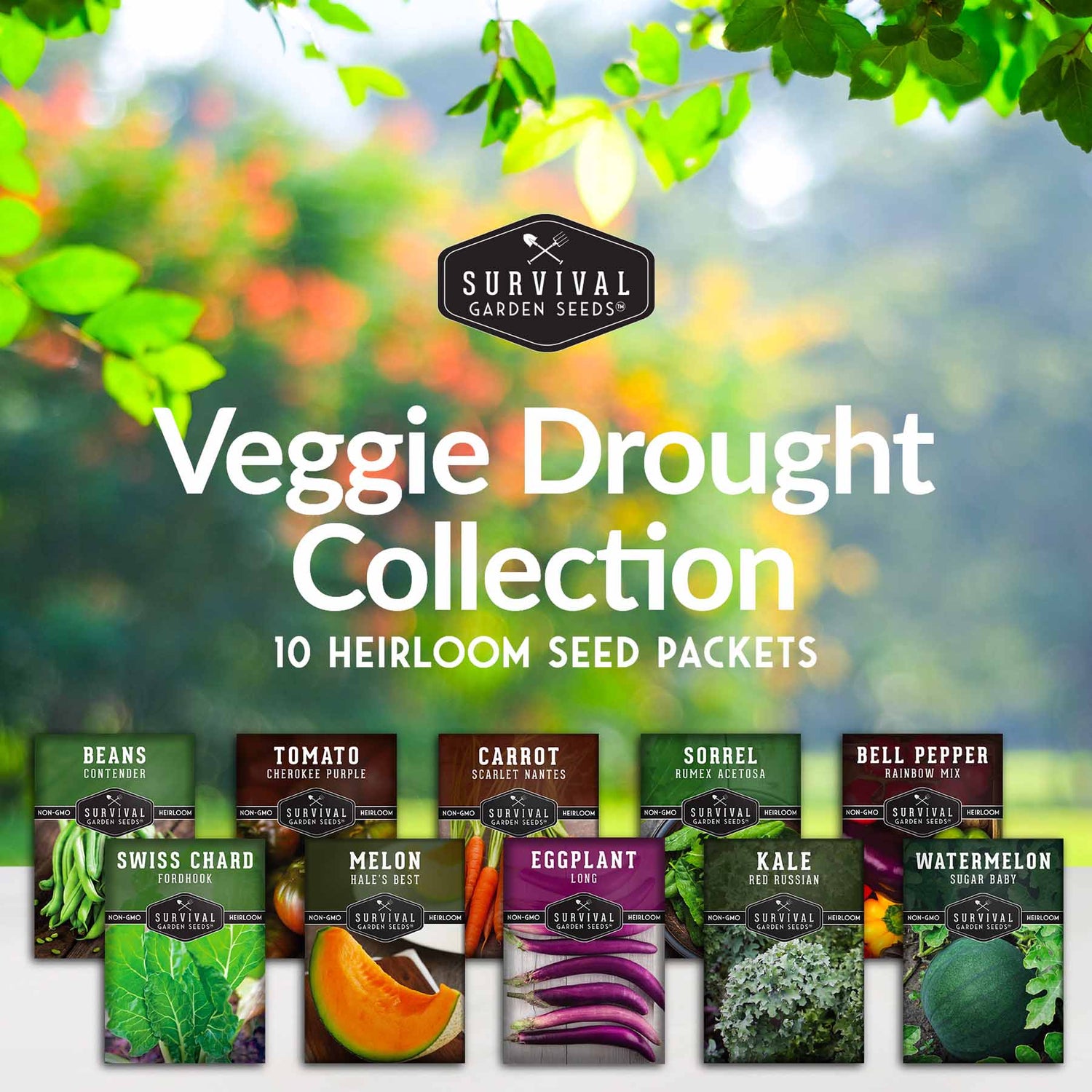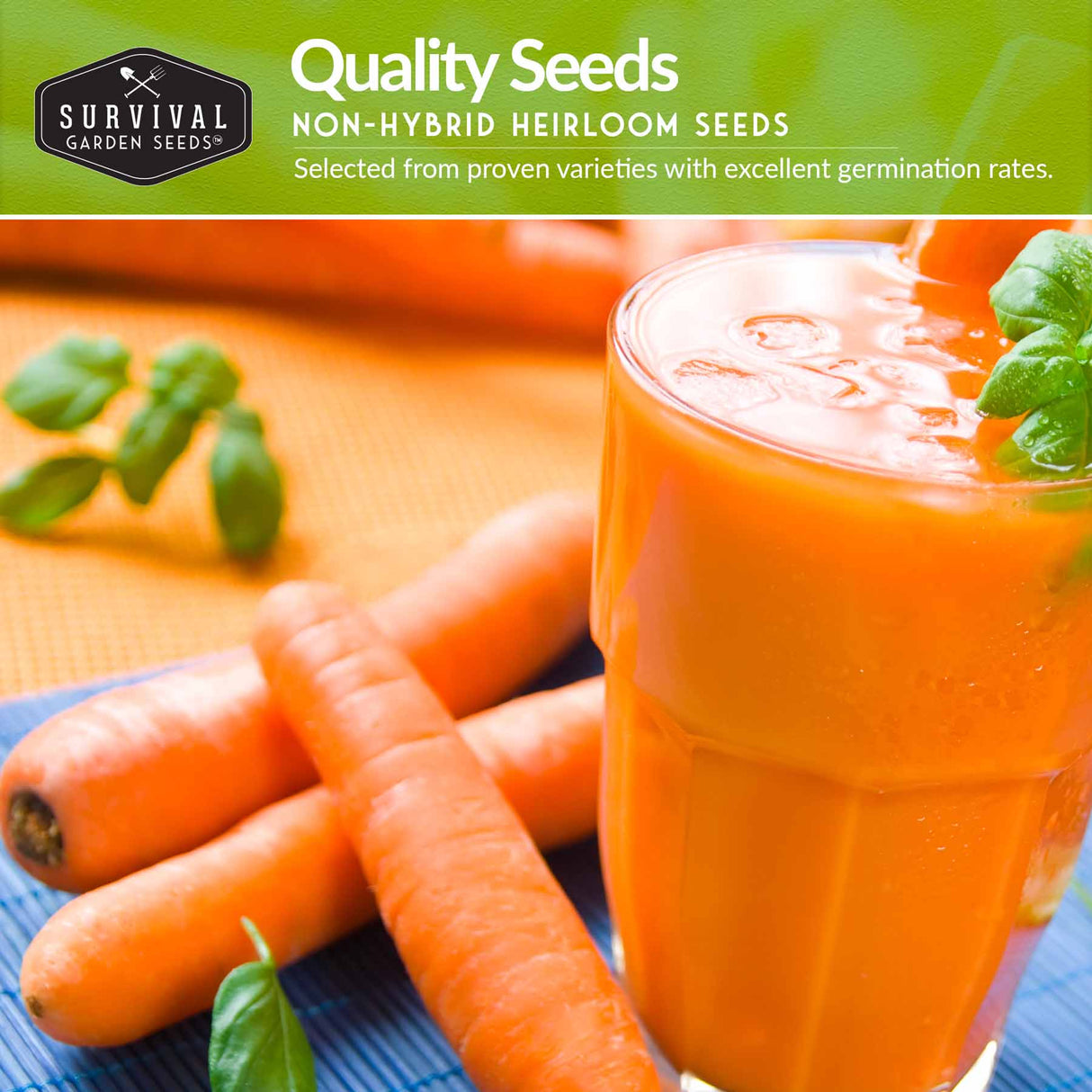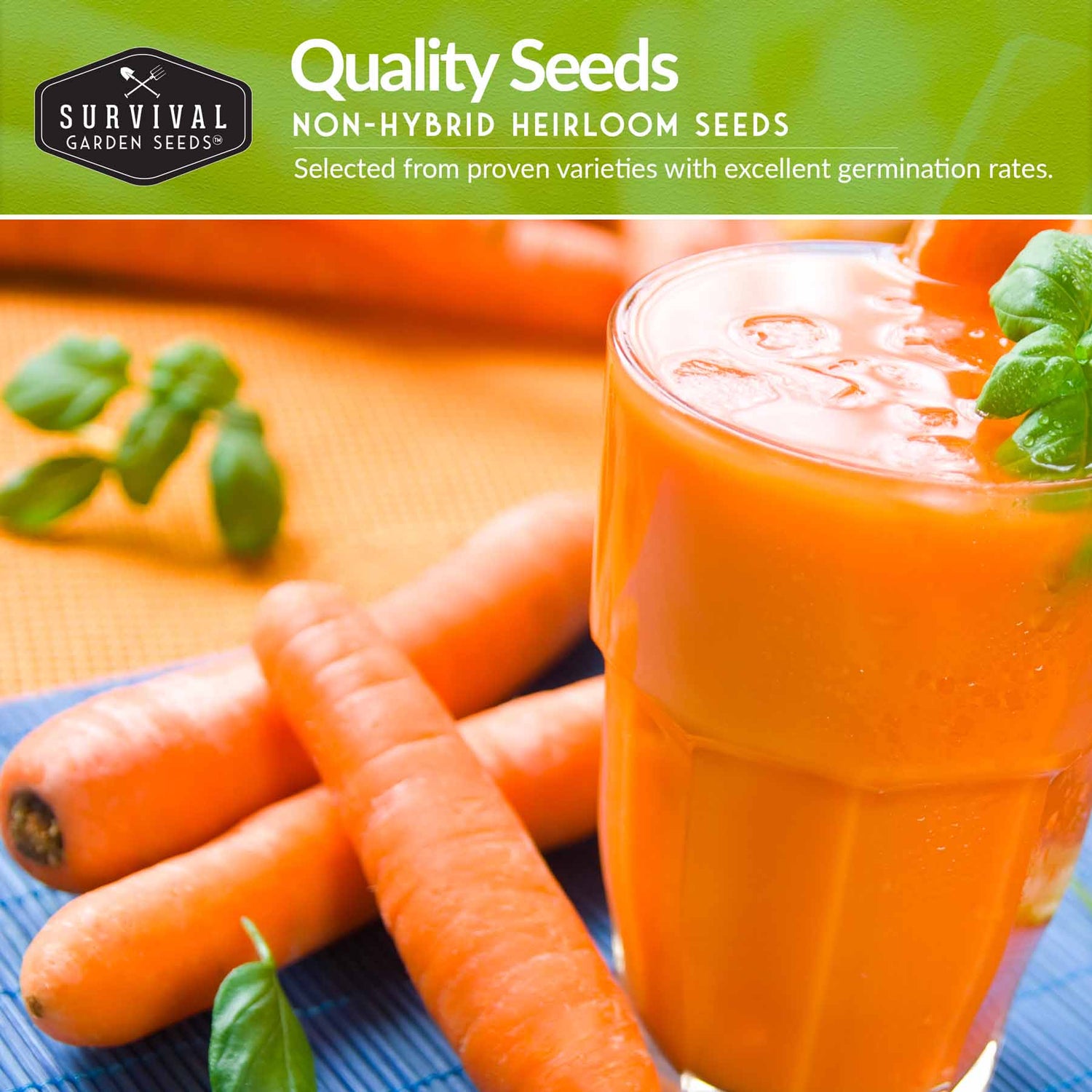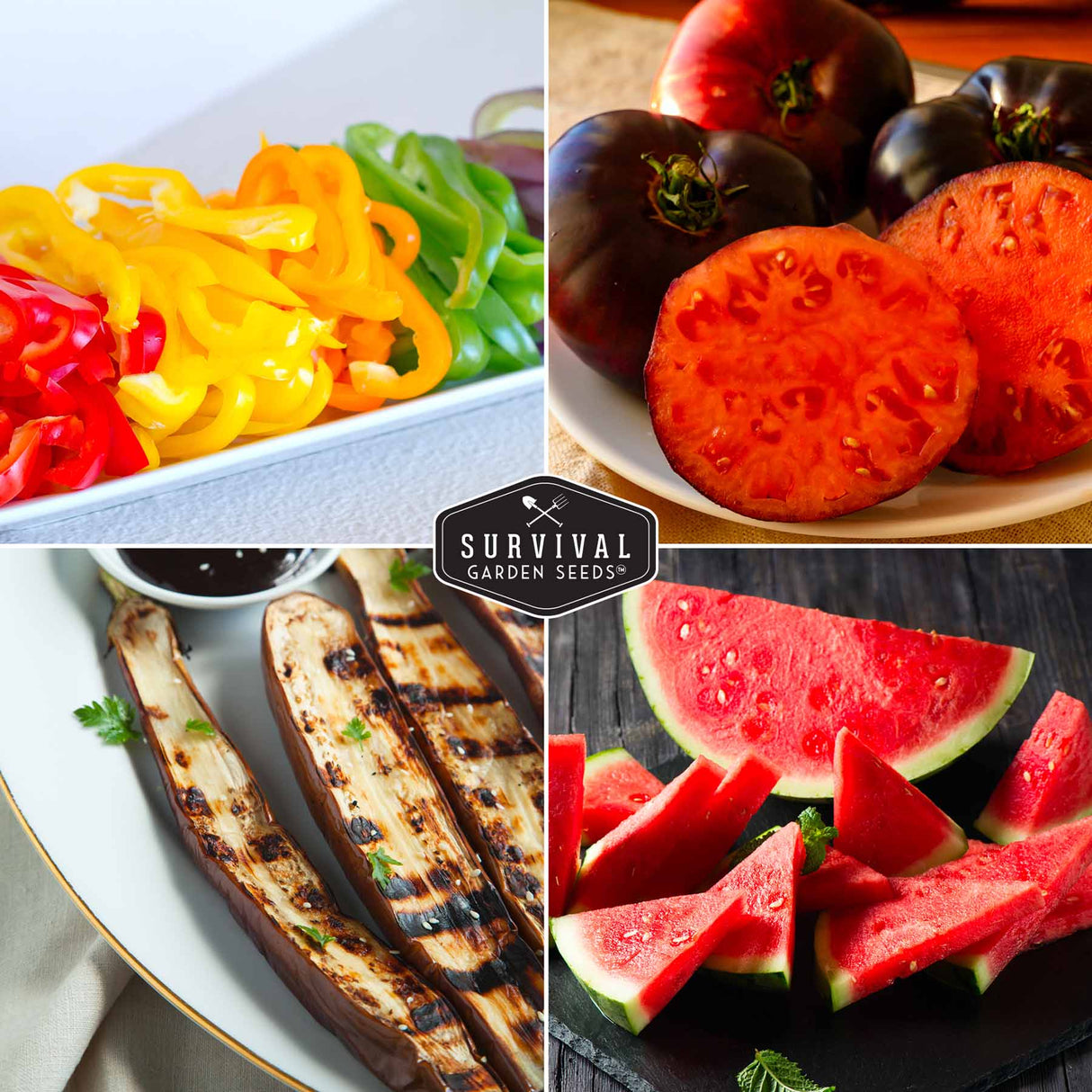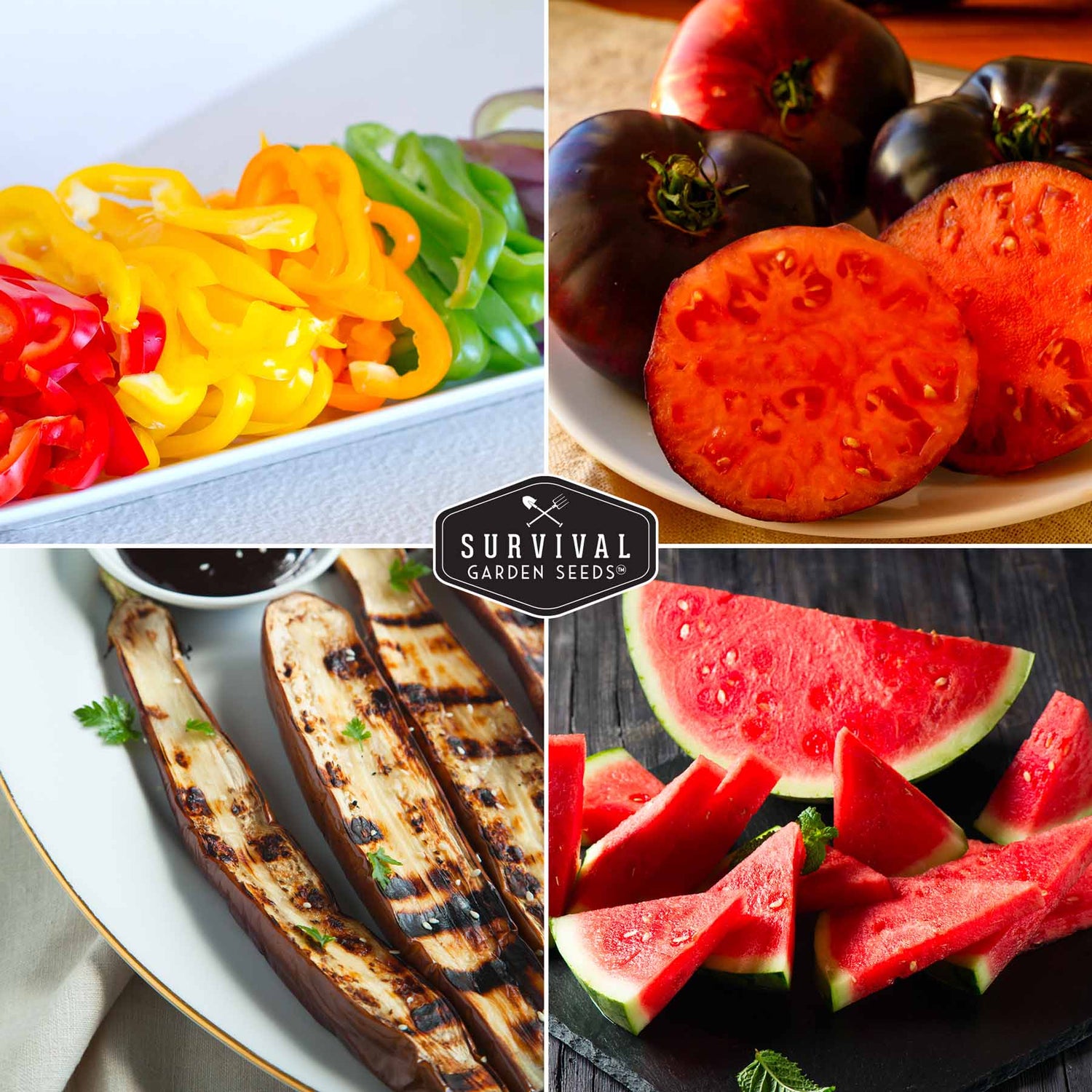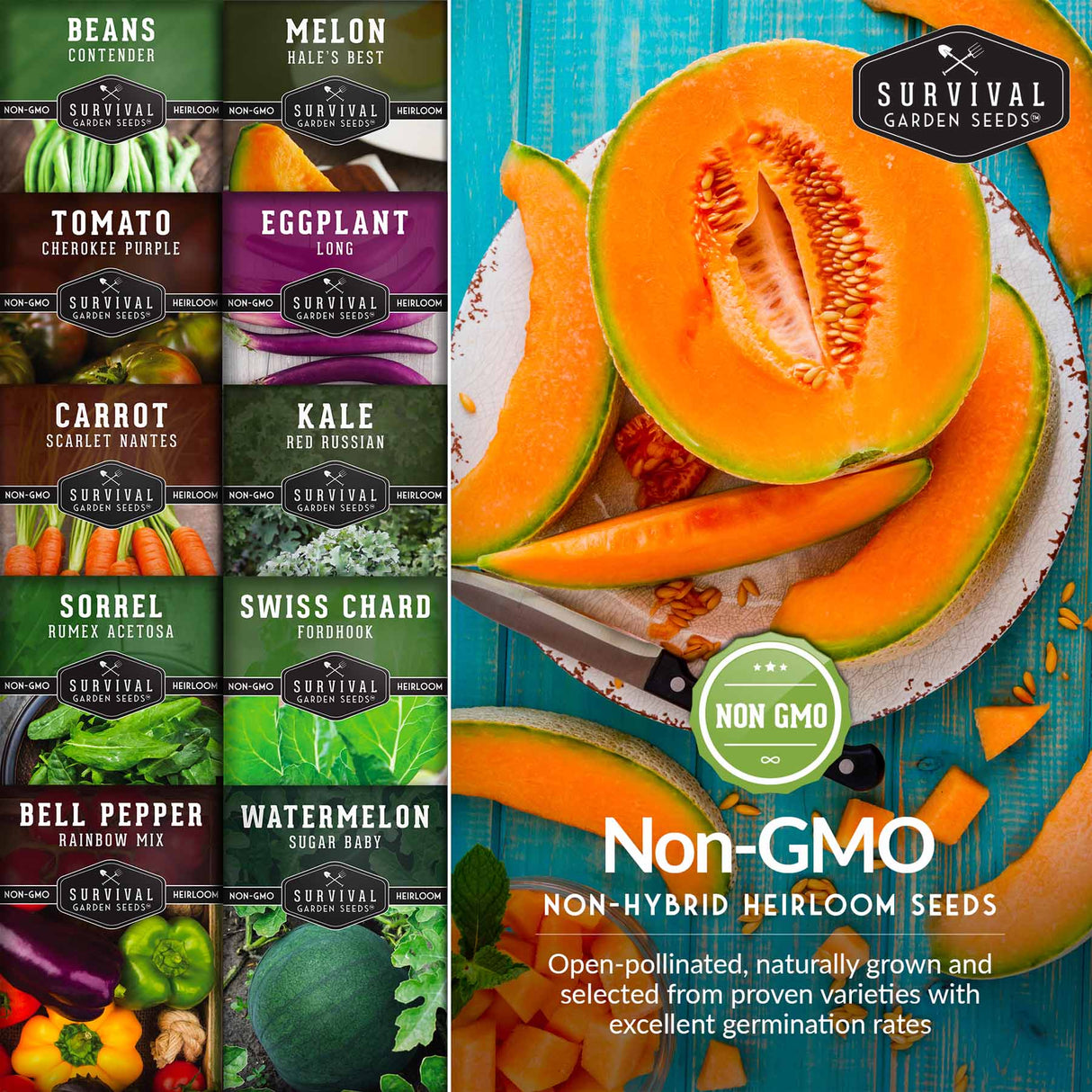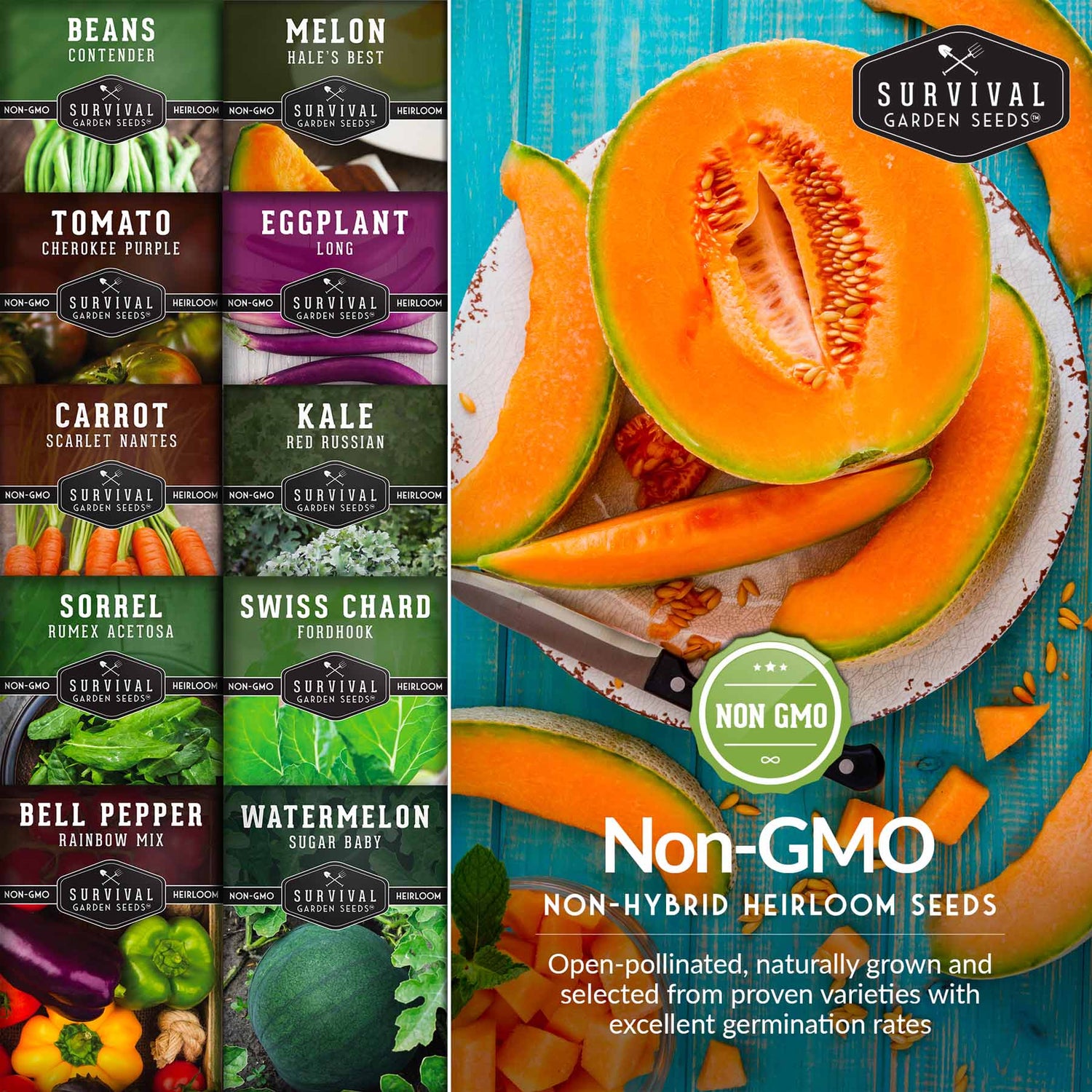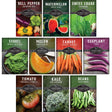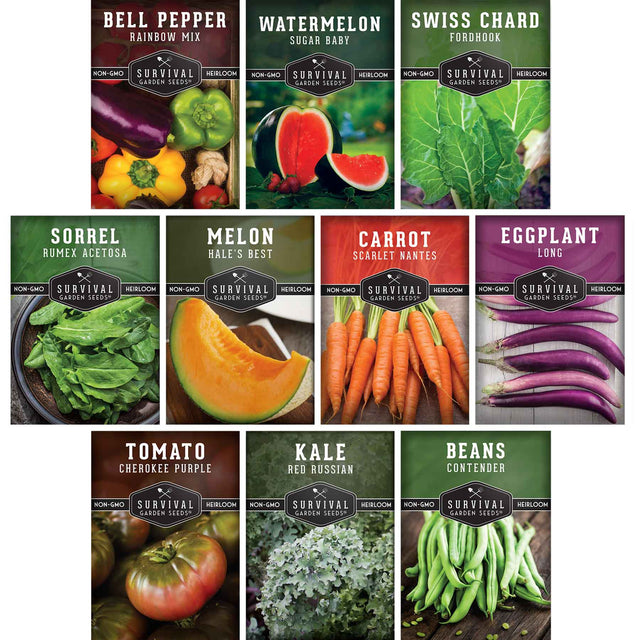Drought-Tolerant Vegetable Seeds Variety Pack – 10 Heat-Resilient, Full-Sun Garden Favorites for Dry Climate Growing
Heirloom - Non-GMO - Reliable Germination
Drought-Tolerant Vegetable Seeds Variety Pack – 10 Heat-Resilient, Full-Sun Garden Favorites for Dry Climate Growing is backordered and will ship as soon as it is back in stock.
Couldn't load pickup availability
Grow a productive, water-wise garden with the Drought-Tolerant Vegetable Seeds Variety Pack from Survival Garden Seeds. This curated collection includes ten versatile vegetables and herbs chosen for their ability to handle dry conditions, full sun, and varied soils across many U.S. growing zones. Ideal for gardeners looking to conserve water while still enjoying a steady harvest of homegrown produce, this mix supports resilient gardening from spring through fall.
Reliable, Water-Wise, and Productive
Each drought-tolerant seed variety in this pack offers unique strengths that help it perform well in hot, dry, and variable conditions:
- Fordhook Swiss Chard thrives in diverse soils, producing crinkled leaves and sturdy stems that can be harvested young or mature.
- Sorrel is a hardy perennial herb with a tangy, lemon-like flavor that adapts well across climates; consider container planting to manage spreading.
- Scarlet Nantes Carrot grows deep taproots that efficiently seek moisture, resulting in crisp, sweet carrots in loose, well-draining soil.
- Red Russian Kale offers cold hardiness and tender, red-tinged leaves excellent for salads, sautés, and extended-season growing.
- Cherokee Purple Tomato, an heirloom indeterminate variety, develops deep roots and rich, smoky-flavored fruit in well-drained, fertile beds.
- Rainbow Bell Pepper produces colorful, thick-walled peppers and adapts easily to different soils with steady watering.
- Contender Green Bean is a dependable, high-yielding snap bean suited for a range of climates and soil types.
- Sugar Baby Watermelon matures quickly, preferring sandy, well-drained soil and delivering small, sweet melons with a thin rind.
- Long Eggplant is adaptable and productive when given warm temperatures, well-drained soil, and even moisture.
- Hale’s Best Melon (Cantaloupe) produces aromatic, sweet fruit and thrives in warm conditions with consistent moisture.
Why Customers Love the Drought-Tolerant Variety Pack
- Practical mix designed for hot, dry, or water-limited gardens
- Ten popular, adaptable vegetables and herbs suitable for beginners and experienced growers
- Ideal for full-sun locations and a wide range of U.S. climates
- Helps support steady harvests even in challenging growing seasons
- Offers a diverse selection of flavors, textures, and garden uses
How to Grow
Plant each variety according to its specific spacing and depth recommendations, favoring full-sun locations and well-draining soil. Amend beds with organic matter to support root development and moisture retention. Water deeply but infrequently to encourage drought resilience, and mulch around plants to reduce surface evaporation. Many varieties can be succession-planted from spring into fall, depending on your growing zone.
Harvest & Use
Harvest leafy greens like chard and kale as needed for salads, sautés, or soups. Pick beans and peppers frequently to encourage continued production. Allow melons, tomatoes, and eggplants to fully mature for the best flavor and texture. Each variety brings versatility to everyday cooking, from fresh eating to preserving.
Heirloom Garden Seeds
All of our seeds are open-pollinated, non-GMO, heirloom varieties with tested germination rates
Payment & Security
Payment methods
Your payment information is processed securely. We do not store credit card details nor have access to your credit card information.
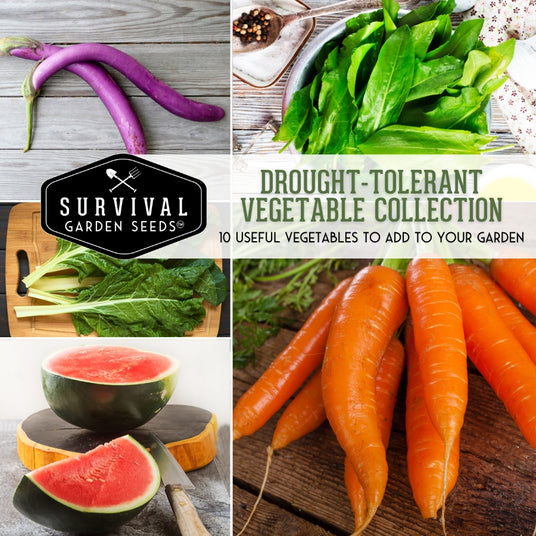
Versatile Garden Favorites
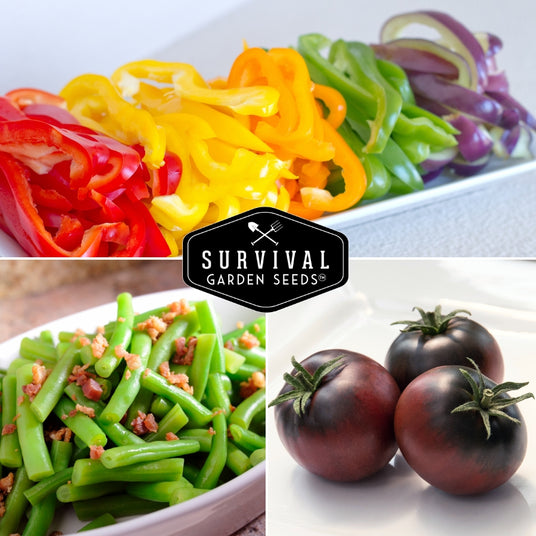
10 Useful Vegetables
Why Choose Survival Garden Seeds
At Survival Garden Seeds, we believe in preparing today for tomorrow’s peace of mind. That’s why we offer only heirloom, non-GMO, and untreated seeds you can trust to nourish your family and support a sustainable lifestyle. As a family-owned American company, we’re committed to providing seeds that grow strong and true—helping you cultivate health, resilience, and beauty in your garden.
Frequently Asked Questions
Are your seeds heirloom and open-pollinated?
Are your seeds heirloom and open-pollinated?
Yes. All of our seeds are heirloom, open-pollinated varieties, which means they can produce seeds that grow true to type and are suitable for seed saving.
You can learn more about open-pollinated, heirloom, and non-GMO seeds in our Survival Garden Training blog.
Are your seeds non-GMO?
Are your seeds non-GMO?
Yes. All Survival Garden Seeds are 100% non-GMO. Our seeds are open-pollinated heirloom varieties and are never genetically modified.
Are your seeds treated with chemicals?
Are your seeds treated with chemicals?
No. Our seeds are completely untreated and free from chemical coatings, fungicides, or synthetic treatments.
How do I know my seeds are fresh?
How do I know my seeds are fresh?
Every seed packet includes a packed-for date, and we germination-test each seed lot before packaging to ensure high viability.
What is the shelf life of your seeds?
What is the shelf life of your seeds?
Most seeds remain viable for 3 to 5 years or longer when stored properly in a cool, dry place away from light and moisture.
In what USDA hardiness zones can I grow your seeds?
In what USDA hardiness zones can I grow your seeds?
Our varieties are selected to grow successfully across USDA Hardiness Zones 3 through 10. Each packet includes variety-specific planting guidance and germination tips.

